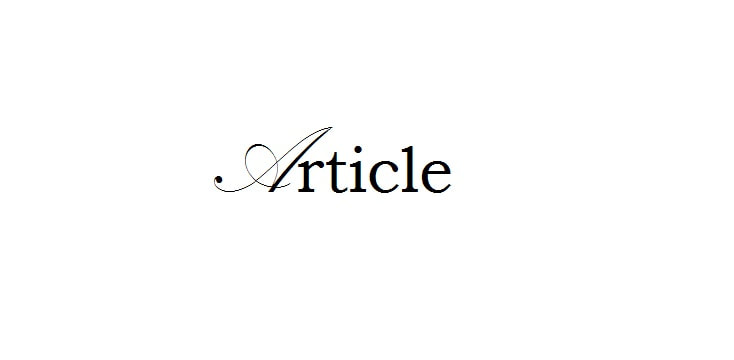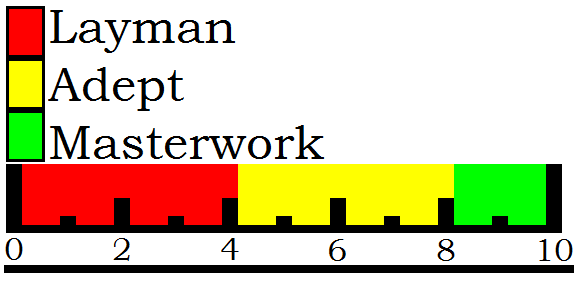|
Every work of fiction that I write a review for receives a rating based on a ten-point scale. There’s no exact science when it comes to critiquing fiction, which means there’s no one-size-fits-all to writing reviews, but admitting that also means that we need to be willing to accept the notion that not all methods of criticism are equal. For years, I’ve been actively developing my own principled methodology for providing a reliable source of criticism. My 2023 video presentation, “A LOOK AT BOOK REVIEWS AND HOW I EVALUATE FICTION", will tell you everything you need to know about what goes into each Indie Breakdown.
|
The #LFLR Rating
My evaluations of fiction revolve around the work itself (the contents), and is given a rating according to the aspects of craft that I focus on. I never take any information from an author’s biography, or their personal reputation, into consideration when I’m rating their work. The score that I attribute to any work of fiction (a short story, a collection, a novel, an omnibus, etc.) is largely a reflection of my accumulated knowledge and familiarity with various elements associated with storytelling. With that being said, the #LFLR Rating is more of a skill based scoring system, that aims to measure the level of craftsmanship put into a product, rather than an arbitrary interpretation of quality based solely upon how a product made me feel.
Ranking Craftsmanship
The #LFLR Rating places a work of fiction into one of three tiers of craftsmanship. Again, if this is be interpreted as a measure of “quality”, then it should be acknowledged as the overall quality based on the application of various skill sets that I recognized within the contents, rather than the overall quality of my personal reading experience with the contents (which would make for a more subjective method of critique).
My evaluations of fiction revolve around the work itself (the contents), and is given a rating according to the aspects of craft that I focus on. I never take any information from an author’s biography, or their personal reputation, into consideration when I’m rating their work. The score that I attribute to any work of fiction (a short story, a collection, a novel, an omnibus, etc.) is largely a reflection of my accumulated knowledge and familiarity with various elements associated with storytelling. With that being said, the #LFLR Rating is more of a skill based scoring system, that aims to measure the level of craftsmanship put into a product, rather than an arbitrary interpretation of quality based solely upon how a product made me feel.
Ranking Craftsmanship
The #LFLR Rating places a work of fiction into one of three tiers of craftsmanship. Again, if this is be interpreted as a measure of “quality”, then it should be acknowledged as the overall quality based on the application of various skill sets that I recognized within the contents, rather than the overall quality of my personal reading experience with the contents (which would make for a more subjective method of critique).
Layman
One thing I’ve noticed about most works that fall into this level of craftsmanship is that it’s hardly ever due to a lack of creativity. I’ve had a good time with several stories in this tier, and I did so solely based on the unique concepts from the author’s imagination, but I also understand that that’s not enough to justify a higher rating. The most common reason why works of fiction would fall somewhere in this tier is usually due to observable deficiencies in clarity and execution.
Adept
The rank of Adept is for any work of fiction in which the author displays fundamental knowledge in story craft. What’s important to note is that just because an author could show me that they were capable of telling a coherent story, doesn’t automatically mean I was having a good time as the reader. They say the worst thing a story can be is boring, but if you ask me the worst thing a story can be is incomprehensible. Even if a story is “boring”, it can still be analyzed/studied, which adds purpose to writing a review on the work. Again, my ratings are not a reflection of my personal reading experience with the material, because I don’t think it makes sense to give a book a lower rating just because I personally felt “bored” with the contents. What one individual considers “boring” could just be a result of their inability to appreciate subtlety or recognize nuanced thinking. It’s important to note that there are degrees of variation, so just because two authors may both be ranked Adept in their craft, doesn’t mean their creative writing skills are comparable to each other (hence the necessity of individual #LFLR Ratings).
Masterwork
A Masterwork is easy to define but difficult to point out in the wild. How can an individual claim that they have read the work of a genius? There is an undeniable pressure when it comes to ranking a piece of fiction a Masterwork. I think if anything, people will be more likely to question whether or not the critic is capable of recognizing a work of genius when they see it, rather than scrutinizing the work itself. What I mean is that most people would agree that a Masterwork is fiction that not only exemplifies a high degree of creative writing skill, but also captures the imagination of readers. However, if a story is extremely compelling, is that enough to call it a “Masterwork”? Was the author intentionally trying to “move” the reader in some type of way, and does it even make a difference either way? When it comes to ranking something a Masterwork, I think the most effective way to describe this level of craftsmanship is to simply say, “The stars were aligned.”
One thing I’ve noticed about most works that fall into this level of craftsmanship is that it’s hardly ever due to a lack of creativity. I’ve had a good time with several stories in this tier, and I did so solely based on the unique concepts from the author’s imagination, but I also understand that that’s not enough to justify a higher rating. The most common reason why works of fiction would fall somewhere in this tier is usually due to observable deficiencies in clarity and execution.
Adept
The rank of Adept is for any work of fiction in which the author displays fundamental knowledge in story craft. What’s important to note is that just because an author could show me that they were capable of telling a coherent story, doesn’t automatically mean I was having a good time as the reader. They say the worst thing a story can be is boring, but if you ask me the worst thing a story can be is incomprehensible. Even if a story is “boring”, it can still be analyzed/studied, which adds purpose to writing a review on the work. Again, my ratings are not a reflection of my personal reading experience with the material, because I don’t think it makes sense to give a book a lower rating just because I personally felt “bored” with the contents. What one individual considers “boring” could just be a result of their inability to appreciate subtlety or recognize nuanced thinking. It’s important to note that there are degrees of variation, so just because two authors may both be ranked Adept in their craft, doesn’t mean their creative writing skills are comparable to each other (hence the necessity of individual #LFLR Ratings).
Masterwork
A Masterwork is easy to define but difficult to point out in the wild. How can an individual claim that they have read the work of a genius? There is an undeniable pressure when it comes to ranking a piece of fiction a Masterwork. I think if anything, people will be more likely to question whether or not the critic is capable of recognizing a work of genius when they see it, rather than scrutinizing the work itself. What I mean is that most people would agree that a Masterwork is fiction that not only exemplifies a high degree of creative writing skill, but also captures the imagination of readers. However, if a story is extremely compelling, is that enough to call it a “Masterwork”? Was the author intentionally trying to “move” the reader in some type of way, and does it even make a difference either way? When it comes to ranking something a Masterwork, I think the most effective way to describe this level of craftsmanship is to simply say, “The stars were aligned.”






